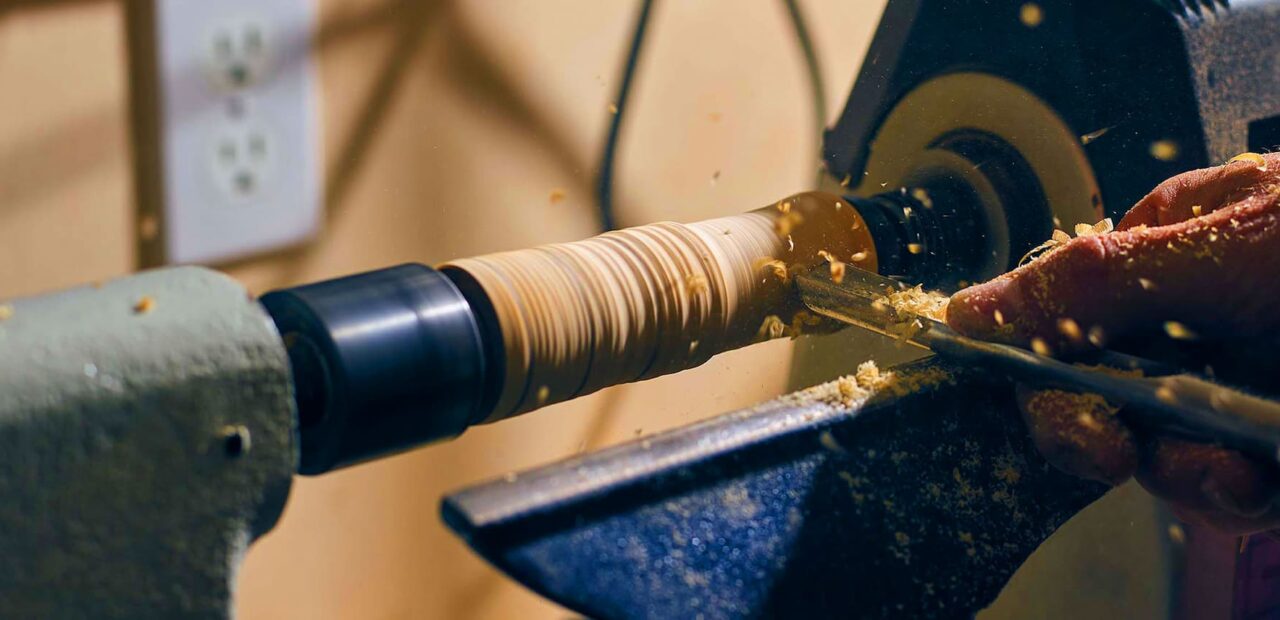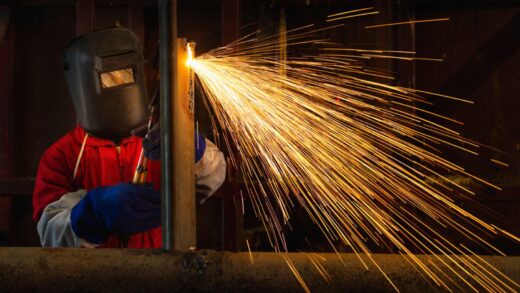Beginner-Friendly Woodturning: Handy Tips to Get You Started
Are you curious about diving into the world of woodturning but not sure where to start? Well, you’re in the right place! The journey for beginners is not only exciting but also immensely rewarding. Once you become acquainted with safe lathe use and master various tools, the key to progress is consistent practice.
Whether you’re looking to perfect your technique or explore creative designs, this guide offers essential tips to set you on the right path. From seeking guidance to choosing the right tools and creating your dedicated workspace, here are some handy tips to get you started.
Contents
Seek Guidance
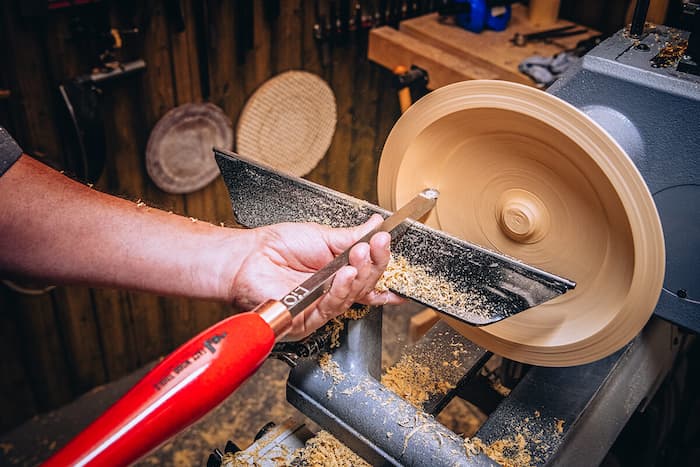
For beginners in any skill, it’s crucial to seek advice and guidance. This could mean learning from a mentor, joining workshops, or being part of online communities. Don’t hesitate to ask questions, share your experiences, and soak up the wisdom of the woodturning community. Attending workshops or demonstrations is a great way to see techniques in action. Seeking guidance not only accelerates your skill development but also creates a supportive learning environment to help you navigate challenges.
Opt for Quality Tools and Keep Them Sharp
Opting for well-made tools is a vital decision that plays a significant role in shaping the course of your woodworking journey. For beginners, it might be tempting to go for cheaper tools, but choosing high-quality woodturning tools is better as they can give you more accuracy, safety, and overall satisfaction in your craft.
Choosing high-quality tools gives you great control, helping you improve your skills with precision and finesse. The sturdy build and superior materials of these tools create a smoother turning experience, resulting in cleaner cuts and reducing the risk of accidents. This not only elevates the quality of your creations but also establishes a solid foundation for your skill development.
A significant advantage of quality woodturning tools is their versatility, adapting well to different wood types and accommodating various turning techniques. Whether you’re crafting delicate details or larger pieces, the reliability and resilience of these tools ensure consistent performance across diverse projects.
Moreover, the durability of high-quality tools surpasses that of cheaper alternatives. While the initial cost may be higher, the longevity and sustained functionality of these tools make them a cost-effective choice in the long run. Cheaper tools may compromise the quality of your work and necessitate more frequent replacements, leading to higher cumulative expenses. Choosing quality tools not only enhances your craftsmanship but also proves to be a wise and economical investment.
What’s more, keeping your tools sharp is a non-negotiable principle. A sharp cutting edge can enhance the quality of your work while ensuring cleaner cuts and minimising the risk of tear-out and splintering. Mastering the skill of regularly sharpening your tools is critical for every woodturner, whether you use sharpening stones, grinders, or specialised sharpening systems. Sharp tools are essential for tackling different types of wood and achieving various turning techniques. Whether you’re working on intricate details or turning larger pieces, make sure to always keep your tools sharp for a more efficient and successful crafting experience.
Wear Protective Clothing
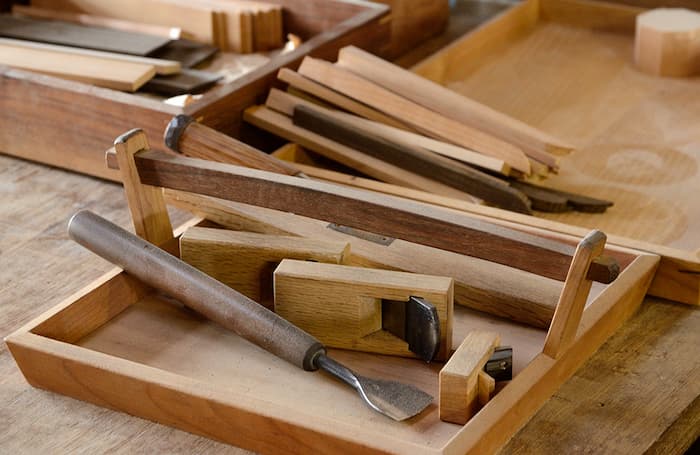
Wearing protective clothing is a non-negotiable aspect for anyone diving into woodturning. As a beginner, safeguarding yourself from wood chips, dust, and potential tool mishaps is paramount. Equip yourself with safety essentials like protective glasses to shield your eyes from flying debris, a dust mask to prevent inhalation of wood particles and sturdy, close-toed shoes for foot protection.
Additionally, wear long sleeves and pants to protect your skin from potential hazards, such as splinters, dust, and contact with various materials. Investing in a quality apron is also beneficial, as it provides an extra layer of defence.
Create a Dedicated Woodturning Space
Establishing a dedicated space for woodturning is pivotal for a seamless crafting experience. This not only fosters efficiency but also allows you to immerse yourself in the craft without disruptions. It provides a focused, organised environment that enhances safety and enjoyment, enabling you to explore and refine your skills with ease.
That said, make sure you designate an area that accommodates your lathe, tools, and workbench. Organise the space to ensure convenient access to your tools and maintain a clutter-free environment. Adequate lighting is essential for precision, enhancing the visibility of intricate details. Make sure to also consider ventilation so you minimise dust inhalation.
Start with Common Woods
When you first start your journey it’s beneficial to focus on commonly available woods like pine, maple, and birch. These species, known for their user-friendly turning characteristics, provide an ideal starting point for beginners. Working with these woods enables you to grasp their behaviour, refine your techniques, and build a solid foundation without the added complexities of exotic varieties. As you become comfortable with these basics, you’ll gain confidence and proficiency, setting the stage for tackling more intricate and challenging projects in the future. Starting with common woods ensures a smoother learning curve and a more enjoyable introduction to the art of woodturning.
Invest in a Lathe with Variable Speed
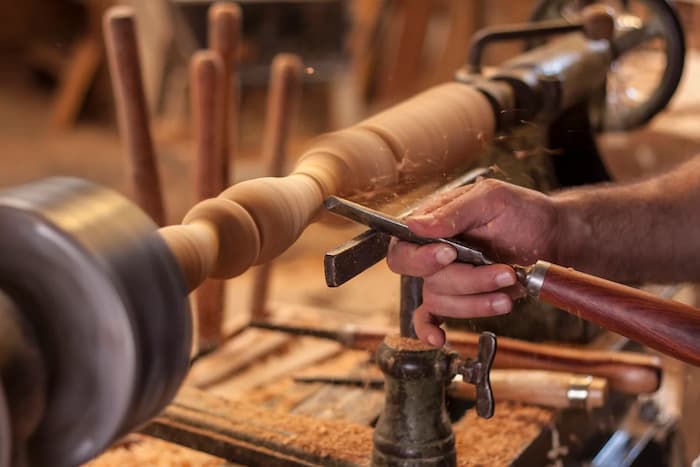
Investing in wood turning lathe tools with variable speed settings is a strategic decision that can significantly enhance your capabilities. This feature allows you to customise the speed based on the specific requirements of each project, the type of wood you’re working with, and the desired result. Lower speeds are suitable for delicate work, ensuring meticulous craftsmanship, while higher speeds expedite material removal.
Variable speed not only grants you greater control over the turning process but also enhances precision, contributing to a smoother and more efficient experience. The adaptability that variable speed offers proves invaluable in achieving precision and control, whether you’re working on intricate details or shaping larger forms.
Join a Woodturning Community
For you, as a beginner, connecting with fellow enthusiasts in local clubs or online communities is pivotal. Joining a woodturning community creates a platform where you can share your experiences, seek advice, and gain insights into techniques and projects. You have access to a supportive network in this collaborative setting that like-minded people who are passionate about the craft of woodworking have created.
You can tap into their expertise, ask questions, and learn from their journeys. Whether you’re navigating the basics or exploring new techniques, engaging with a community ensures you have a support system, cultivating a meaningful sense of connection and encouragement.

